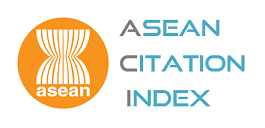DOES THE BANK’S LIQUIDITY HOARDING MATTER? EVIDENCE FROM VIETNAMESE COMMERCIAL BANKS
DOI:
https://doi.org/10.35382/tvujs.15.3.2025.133Keywords:
bank’s performance, ESG practices, liquidity hoardingAbstract
Using a novel measure of liquidity hoarding, this study investigates its effects on the performance of Vietnamese commercial banks from 2012 to 2023. The analysis reveals a significant detrimental relationship between liquidity hoarding and bank performance. The research also identifies key drivers of profitability, with the loan-to-deposit ratio, capital adequacy ratio, and bank size showing positive influences, while operating costs, management efficiency, and bank age had negative effects. In addition, the findings revealed that inflation positively affects banks’ performance by allowing banks to revalue assets. A key contribution is the novel finding of a negative correlation between the adoption of environmental, social, and governance policies and bank performance. This nexus reflects the upfront costs and initial resource drain associated with implementing these policies. This suggests that the financial benefits of environmental, social, and governance practices may be a long-term payoff, rather than a short-term gain.















